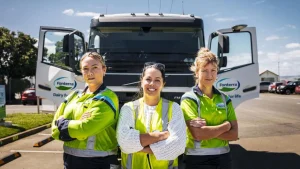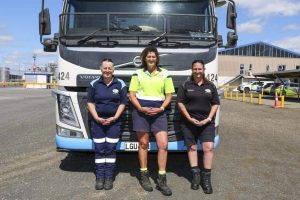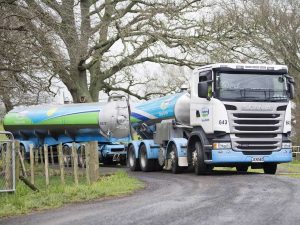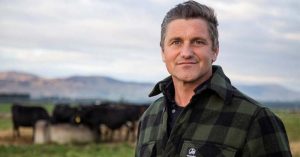
DairyNZ has launched a recruitment campaign fronted by Eastern Bay of Plenty dairy farmer Shannon Munro.
Munro says that as a young, Māori woman, she was proud to be presenting a different face to dairy farming and to be associated with the campaign.
DairyNZ chief executive Dr Tim Mackle says the sector is between 4000 to 6000 workers short for the coming dairy season.
“Welcoming and supporting new farming talent is vital to the sector’s long game, so we’re excited to launch a new campaign encouraging young Kiwis to get into the dairy sector,” he said.
Many New Zealand women are taking the chance to change jobs or try a new job in the rural sector.
For the first time in her life 44-year-old Tracy Kerr is working on a dairy farm.
She was asked by a woman from the Greymouth Work and Income office if she would like to come on a five-week Wahine Toa development course. Kerr says she was feeling low and decided to do it.
With encouragement and support from other women on the course sharing their stories, she says she felt better. She realised most of the women had no idea what sort of job they wanted or could do and she was the same.
Kerr got a job offered to her through WINZ at a beef and dairy farm just out of Westport. She started just under a month ago and hopes to be made permanent. She had never done this type of work before.
“I am out fixing fences and milking cows, my whole life has changed,” Kerr said.
“I moved out of the caravan park and into a two-bedroom home provided by the boss.”
She is getting used to turning in early, to be up by 3.30am to be at the milkshed by 4am. She is part of the team milking 300 cows.
“I love the cows, one of the boss lady cows was the other morning sniffing me and wanting a pat, I enjoy being around them.
“To the women out there feeling like I did, give it a go, give yourself a chance at a job on a farm.
“Its been life changing and I am aiming for onwards and upwards.”
Late last year The Meat Industry Association launched the New Zealand arm of a global industry campaign to attract more women into the sector.
One of their champions, Jayne McMillan, started in the meat industry 27 years ago when there were no women on the processing floor. She now owns a boutique butchery and delicatessen in Cromwell.
McMillan says there is a role for women in all stages of the meat industry from technical, butchery or trimming through to marketing, procurement, and leadership.
The meat industry is short about 2000 workers, and is offering on-the-job training for roles that pay as much as $80,000.
Policy manager of Rural Women Angela McLeod says women have worked in the rural sector for a long time but it is now more acceptable to say so. She says it is great to see more women recruited into rural jobs but they need to be in a culture and workplace structure where they are treated equally and can stay safe.
“It is recognised and accepted more that women are working in the rural sector but there is still evidence of women assumed to be an assistant and not the owner and it would be good if this changed too,” McLeod said.
“When more boards have women and more women are chief executives in the farming sector, some role assumptions will change and this will also attract more women to the sector.”
Large orchard operators are desperate for labourers for the apple harvest, which is well under way and kiwifruit started this week.
Mikayla Franklin started a job at Craigmore Orchard seven months ago. She is a 22-year-old mother who was looking for a job change that would work for her partner and her daughter, who starts school this year.
Already she has worked in a butchery, and bakery, and held three cleaning jobs at once.
When her friend mentioned she was working outside at an apple orchard, Franklin was interested. She says it is the best job she has ever had. Her move was supported by WINZ and Central Hawke’s Bay District Council.
She has 35 hours a week 7.30am to 4.30pm guaranteed and at the moment can do more than 50 hours a week if she wants to.
Franklin is now operating a computerised platform used for fruit picking and already been told she has potential to be a permanent team member, she said. She is also planning to start a horticulture qualification.
“I have had jobs with bad bosses and just had to end them for my own good and although I have enoyed cleaning jobs and still do a couple, this work is secure and I keep learning,” Franklin said.
Franklin and her partner have bought a house in Ongaonga near Waipukurau and are focused on retaining a steady income.
“My partner is a hard worker and so am I. I like to be independent from others for my income and there is ongoing work here after the harvest.”
“The guys are all good guys and the boss is friendly, yeah its hot work and long hours now but we like it.
“It is the best place I have ever worked.”
























